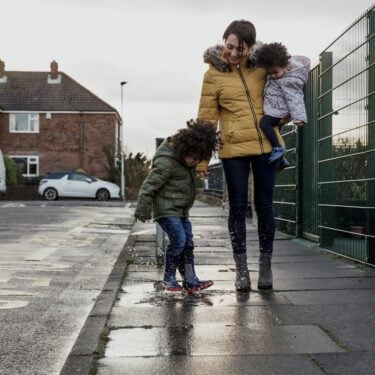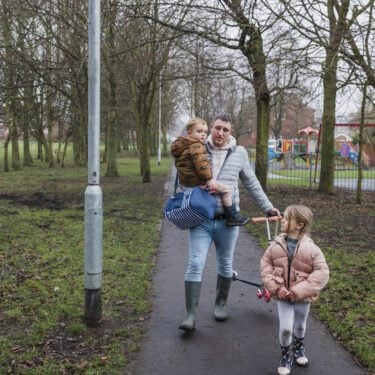
21/04/11
2 min read
According to research on the effects of poverty on child development undertaken by Professor Ingrid Schoon and funded by the Nuffield Foundation, children from homes that experience persistent poverty are more likely to have their cognitive development affected than children in better-off homes.
Family instability, however, makes no additional difference to how a child’s cognitive abilities have progressed by the age of five, after controlling for family poverty, family demographics (e.g. parental education and mother’s age) and early child characteristics.
There is much evidence of the negative effects of both poverty and family structure on child development, particularly persistent poverty and adverse living conditions. Poverty and family instability are linked as poverty affects families economically and socially and can increase the risk of relationship break-ups.
However, less is known about their relative impact on children’s cognitive functioning.
Millennium Cohort Study data
Professor Ingrid Schoon, from the Institute of Education at the University of London and Professor Barbarba Maughan, from the Institute of Psychiatry at Kings College London studied data collected for the Millennium Cohort Study (MCS), a survey of 18,819 babies born between September 2000 and January 2002 into 18,553 families living in the UK. Their findings are published today ahead of print in the Journal of Epidemiology and Community Health.
Data were collected from parents through personal interviews and self-completion questionnaires and direct assessment of children’s cognitive ability. In 2006, at the age of five years, 15,246 families took part in the survey, which gave the researchers complete data on cognitive assessments for 14,682 children including complete data on all relevant measures for 8,874 children and their mothers.
They looked at family poverty, family transitions, family demographics, and housing conditions – assessed when the child was nine months, three years, and five years old, and their impact on children’s cognitive ability (measured using the British Ability Scales at age five; the test scores were standardized to a mean of 50 and a standard deviation of 10).
Persisting poverty
Analysis of the results showed that most families (62.1%) were identified as not being poor at any of the three assessment time points, and 13% of families experienced persisting poverty.
Most parents were stably married (56.6%), and about a tenth were either continuously cohabiting with the same partner (12.7%) or continuously single (7.8%).
Just under a quarter of mothers who cohabited when their child was aged nine months were married by the time their child was aged five (usually to the biological father). In addition, about 10% of the single mothers had entered marriage by 2006.
Children growing up in stable two-parent families showed higher levels of cognitive ability than those in one-parent families or those who experienced a change in living arrangements. By contrast, children exposed to ongoing poverty scored seven points less in the naming vocabulary test (part of the cognitive assessments) than those who had never experienced poverty.
Instability does not affect cognitive ability
Analysis showed that there was no significant association between family structure/family instability and cognitive ability after allowing for child characteristics, family poverty and family demographics such as parental education and mother’s age.
Overall, the researchers found there was a strong and significant negative effect of persistent income poverty on a child’s cognitive functioning at the age of five.
They concluded: “Persistent poverty is a crucial risk factor undermining children’s cognitive development – more so than family instability.”




















































